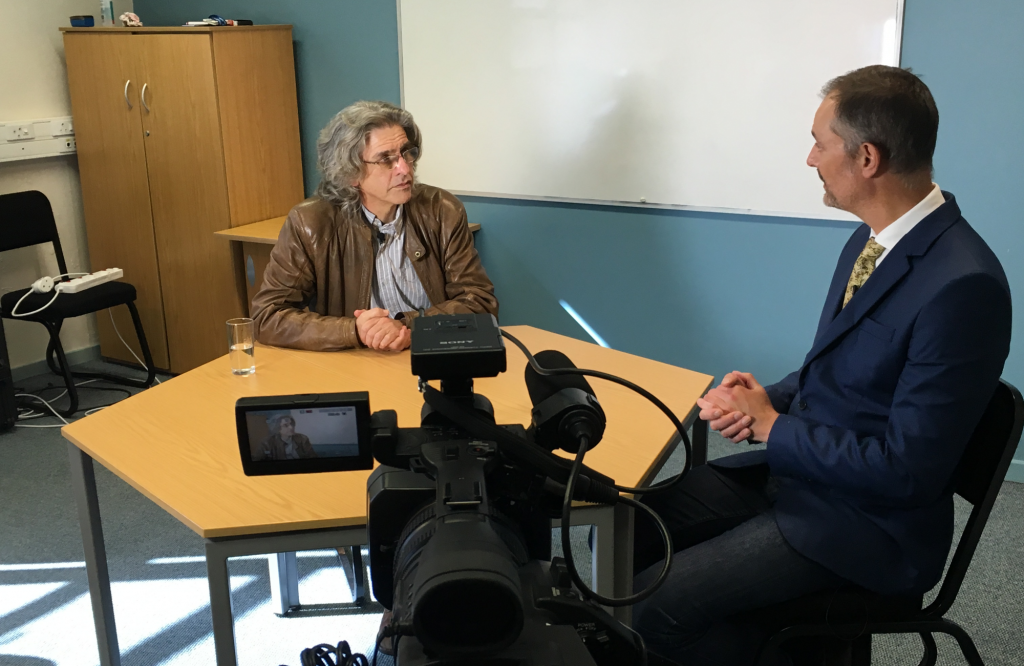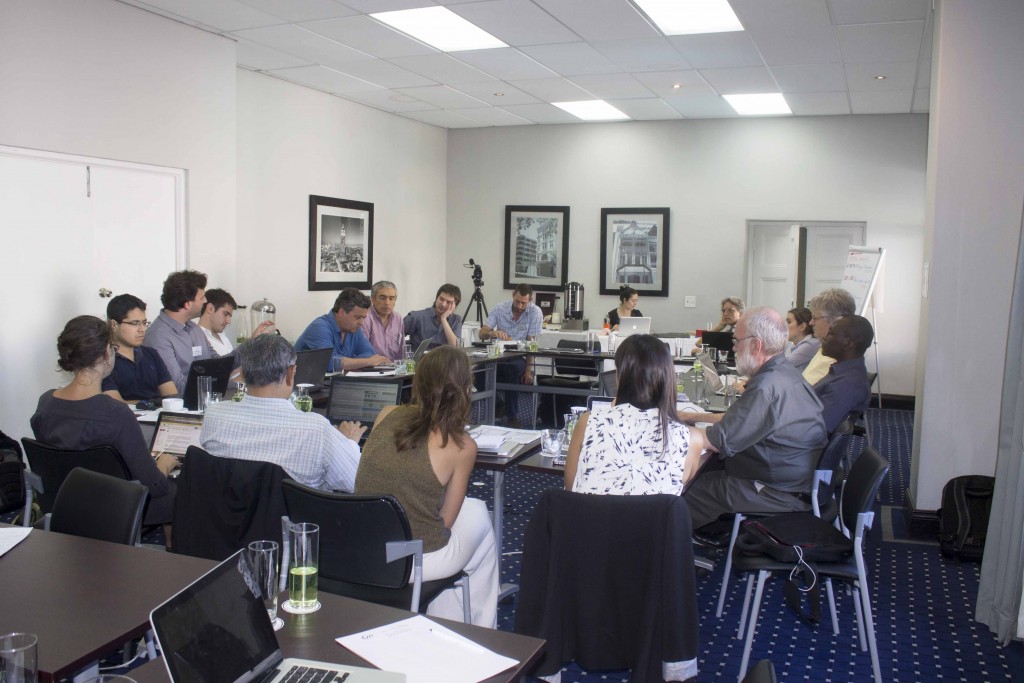 Rafaella Gaetano is a young clinical research fellow working in the field of rare diseases at a hospital in Italy. She took the MOOC, Understanding Clinical Research: Behind the Statistics in order to get to grips with statistics in medical research and found the course extremely useful – simple and easy to follow, with appropriate material for her context.
Rafaella Gaetano is a young clinical research fellow working in the field of rare diseases at a hospital in Italy. She took the MOOC, Understanding Clinical Research: Behind the Statistics in order to get to grips with statistics in medical research and found the course extremely useful – simple and easy to follow, with appropriate material for her context.
Rafaella’s story is very gratifying for Dr Juan Klopper who created the course in response to the ongoing problems his postgraduate medical students were having when starting out on their research.
As Rafaella explained, the course really helps to bridge the gap between the researcher and the statistical consultant. Frustrations are common when an inexperienced researcher approaches a statistical consultant for help – there is no common language or understanding on which to base the discussion. That is also why the UCT Clinical Research Centre is promoting the free online course enthusiastically – there is a shortage of taught support courses for clinical research, and an online offering allows for a great deal of flexibility of when you can take it.
Raphaella also found the flexibility very appealing as it allowed her to fit the course in around her work and other commitments rather than the other way around as is the case with face-to-face taught courses. Dr Klopper structured the course for those without a statistics background and to enable people, who had been previously very intimidated by statistics, to follow the material easily. The course promotes itself by specifically offering help:
If you’ve ever skipped over`the results section of a medical paper because terms like “confidence interval” or “p-value” go over your head, then you’re in the right place. You may be a clinical practitioner reading research articles to keep up-to-date with developments in your field or a medical student wondering how to approach your own research. Greater confidence in understanding statistical analysis and the results can benefit both working professionals and those undertaking research themselves. If you are simply interested in properly understanding the published literature or if you are embarking on conducting your own research, this course is your first step. It offers an easy entry into interpreting common statistical concepts without getting into nitty-gritty mathematical formulae. To be able to interpret and understand these concepts is the best way to start your journey into the world of clinical literature. That’s where this course comes in – so let’s get started! The course is free to enroll and take. (from the course enrolment page)
After launching in December 2015, now almost one year later, over 20 000 people have signed up for the course – which offers a new cohort every six weeks.
Reviews left on the course site and on class central have been very positive and it has received a 5-star rating on Class Central, a public MOOC aggregator site.
“What a great course! I highly recommend it to anyone who is interested in clinical research and wants to understand how statistics is used in clinical research. I loved all aspects of the course. The lecture videos were short and crisp. Dr. Klopper is very engaging and explained even the hardest concepts really well.”
“It was an excellent course; comprehensive and very well-explained, indeed without needing to apply much mathematics. Therefore, the course is perfect for most researchers, doctors or allied personnel wanting to learn or enhance their understanding on the statistics behind research, beginners or semi-advanced. I would only recommend the teacher to include an extra week on survival analysis, a very important and frequently misunderstood topic. Thank you for the nice course.”
“These course gave me exactly what I needed as a med student in my clinical years- a practical guide to interpret and evaluate the results of clinical studies presented in articles. The lectures are clear and well organized. The lecture notes are priceless, and will serve me well in the future. Thank you Dr. Klopper for making this high value course and helping with my medical education:)”
“I would like to thank Juan and the organisers of this course. I would recommend this course to everyone who needs to know about stats. This is the first course on stat that I have completed and understood in great depth. This course helps you to develop deep and thorough understanding of choices of stats tests and justification for the choice. I can’t thank Juan enough. You’ve made difficulties in understanding stats in articles decrease to a great extent. I like that fact that you pull all the learnings together with a case study on how to link it all together. Thank thank you so much. I already recommended to a colleague. I will spread the news.”
Each time the course runs, there are over 1 000 people registered from across the world. Learners from 91 countries have taken the course and found it helpful – including people from India, Egypt, Canada, Mexico, Nigeria, the US, South Africa and let’s not forget, Italy! The course has proven its ability to cater for a need in many healthcare professionals who do not feel confident in reading and understanding clinical research statistical results. About 40% of those enrolled are postgraduate students – the primary target audience, but 60% are working professionals whom Dr Klopper knew needed support in interpreting and evaluating current medical literature, an essential basis of modern medical practice.


